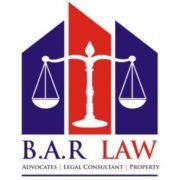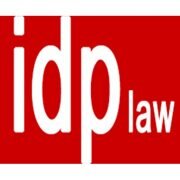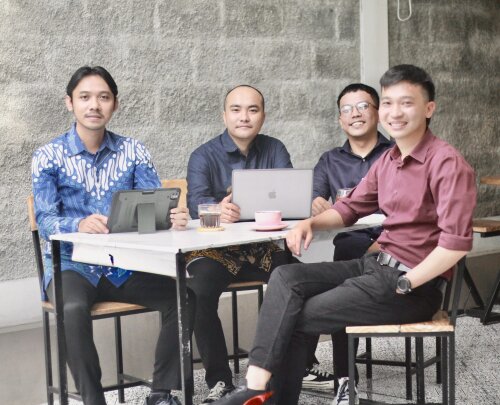Best Foreclosure Lawyers in Indonesia
Share your needs with us, get contacted by law firms.
Free. Takes 2 min.
Free Guide to Hiring a Real Estate Lawyer
Or refine your search by selecting a city:
List of the best lawyers in Indonesia
About Foreclosure Law in Indonesia
Foreclosure in Indonesia primarily refers to the legal processes involved when a borrower defaults on a loan secured by real estate, leading to the creditor, typically a bank or financial institution, seeking to recover the remaining debt by selling the property. The foreclosure process in Indonesia can be complex due to its statutory and regulatory framework, which often requires navigating through various legal and administrative steps. Understanding these processes is crucial for both lenders and borrowers to protect their interests.
Why You May Need a Lawyer
There are several scenarios in which seeking legal advice regarding foreclosure may be necessary:
- If you are facing difficulties in keeping up with mortgage payments and wish to explore all options to avoid foreclosure.
- If you are involved in a foreclosure process and need guidance on your rights and obligations under Indonesian law.
- When you are a creditor and need assistance with the foreclosure process to ensure compliance with legal requirements.
- If you are considering purchasing foreclosed property and need advice on the legal implications and due diligence.
- If you suspect illegal or unfair practices in the foreclosure process and wish to challenge it legally.
Local Laws Overview
Foreclosure in Indonesia is governed by various national and regional regulations. Some key aspects include:
- The Indonesian Civil Code, which outlines the rights and obligations of the parties in a foreclosure scenario.
- The role of the Indonesian courts in approving and overseeing foreclosure sales.
- Regulations regarding the auction process managed by the State Assets and Auction Service Office (KPKNL).
- Laws protecting consumer rights, which can be relevant in foreclosure situations.
- The procedures for out-of-court settlements, which are sometimes pursued as alternatives to formal foreclosure processes.
Frequently Asked Questions
What is foreclosure?
Foreclosure is the legal process through which a lender attempts to recover the balance of a loan from a borrower who has stopped making payments, often through the sale of the property used as collateral for the loan.
How long does the foreclosure process take in Indonesia?
The foreclosure process duration can vary widely depending on specific circumstances, including legal challenges and the efficiency of the auction process. The entire process can take several months to over a year.
Can I stop a foreclosure process once it has started?
Yes, borrowers can explore options such as loan restructuring, refinancing, or out-of-court settlements to halt foreclosure. Legal assistance may be necessary to negotiate these solutions effectively.
What are my rights during foreclosure in Indonesia?
Borrowers have rights to fair treatment, proper notice of foreclosure proceedings, and the opportunity to redeem the property by settling the debt before or even after the public auction, depending on the circumstances.
What happens if my property is sold at auction?
If your property is sold at auction, the proceeds will first satisfy the debt owed to the lender, including any associated legal fees. Any remaining funds will be returned to the borrower.
Are there alternative solutions to foreclosure?
Yes, alternatives include negotiating a new payment plan, refinancing the loan, selling the property voluntarily, or a deed in lieu of foreclosure, where the borrower voluntarily transfers the property to the lender to settle the debt.
What should I do if I suspect an illegal foreclosure process?
Seek legal counsel immediately to explore legal remedies, which may include challenging the proceedings in court or negotiating with the lender for a resolution.
How can I ensure a fair auction process?
Engage with legal representatives and adhere to the official procedures managed by the KPKNL to ensure transparency and fairness in the auction process.
Can I purchase a foreclosed property?
Yes, purchasing foreclosed properties can be an opportunity to acquire real estate at a lower cost. However, it is essential to conduct thorough due diligence and consult with a legal advisor to understand any risks involved.
Who typically handles foreclosure cases in Indonesia?
Foreclosure cases in Indonesia often require the involvement of legal professionals, financial institutions, and government bodies such as KPKNL to oversee the process.
Additional Resources
Individuals seeking assistance with foreclosure issues in Indonesia might consider reaching out to the following resources:
- State Assets and Auction Service Office (KPKNL) for auction-related inquiries.
- Financial Services Authority (OJK) for regulations regarding financial institutions.
- Legal aid organizations that provide free or affordable legal assistance.
- Indonesian Bar Association for recommendations on qualified legal practitioners in this field.
Next Steps
If you find yourself needing legal assistance with a foreclosure issue in Indonesia, consider the following steps:
- Assess your situation and gather all relevant documents related to your mortgage and property.
- Conduct research or seek referrals to identify a qualified legal professional with experience in foreclosure law.
- Schedule a consultation to discuss your case and explore potential legal strategies.
- Evaluate your financial situation and explore any possible resolutions outside of foreclosure.
- Remain informed of your legal rights and proactively participate in any legal proceedings.
Lawzana helps you find the best lawyers and law firms in Indonesia through a curated and pre-screened list of qualified legal professionals. Our platform offers rankings and detailed profiles of attorneys and law firms, allowing you to compare based on practice areas, including Foreclosure, experience, and client feedback.
Each profile includes a description of the firm's areas of practice, client reviews, team members and partners, year of establishment, spoken languages, office locations, contact information, social media presence, and any published articles or resources. Most firms on our platform speak English and are experienced in both local and international legal matters.
Get a quote from top-rated law firms in Indonesia — quickly, securely, and without unnecessary hassle.
Disclaimer:
The information provided on this page is for general informational purposes only and does not constitute legal advice. While we strive to ensure the accuracy and relevance of the content, legal information may change over time, and interpretations of the law can vary. You should always consult with a qualified legal professional for advice specific to your situation.
We disclaim all liability for actions taken or not taken based on the content of this page. If you believe any information is incorrect or outdated, please contact us, and we will review and update it where appropriate.
Browse foreclosure law firms by city in Indonesia
Refine your search by selecting a city.
















